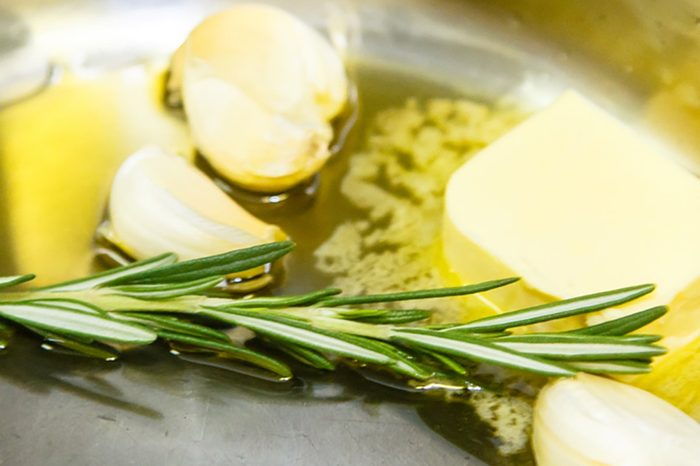
Add garlic to everything you eat
Garlic contains sulfur compounds that may stimulate the immune system’s natural defenses against cancer and may have the potential to reduce tumor growth, explains Evelyn Tribole, MS, RD, a nutritionist in Newport Beach, CA, in Stealth Health: How to Sneak Nutrition Painlessly into Your Diet. It’s not just garlic either. Garlic, onions, leeks, chives, scallions and shallots are allium vegetable and the latest research shows that this family may reduce the risk for colorectal cancer. Specifically, adults who consumed the most allium vegetables had a 79 percent lower the risk of developing colorectal cancer than those who consumed the least. Don’t fall for these common cancer myths.
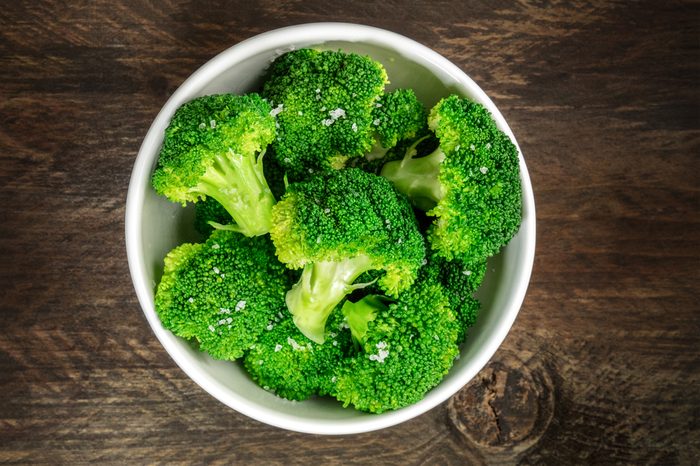
Eat your fill of broccoli
Broccoli is one you should eat frequently. Research has long suggested that sulforaphane—a compound present in broccoli and other cruciferous vegetables—may help to prevent cancer or slow its progression, and research out of from Oregon State University suggests that sulforaphane protects against cancer by reducing the expression of long noncoding RNAs (lncRNAs) in prostate cancer cells, which in turn, disrupted the cells’ ability to form colonies and spread. These healthy habits are easy ways to help prevent cancer.
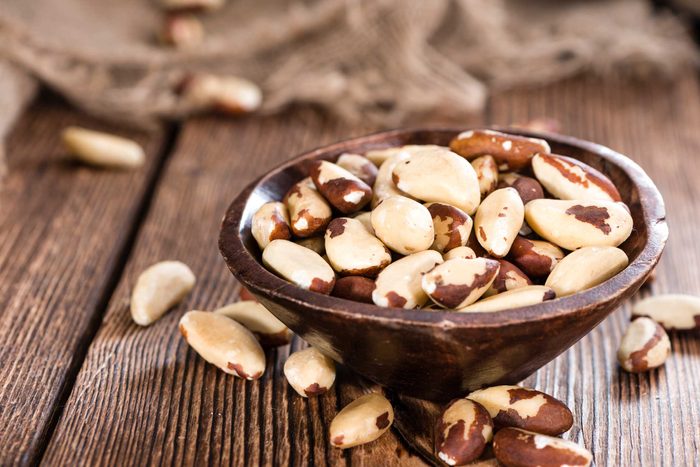
Toast some Brazil nuts and sprinkle over your salad
Brazil nut nutrition boasts a rich source of selenium, a trace mineral that convinces cancer cells to commit suicide and helps cells repair their DNA, Tribole writes. A Harvard study of more than 1,000 men with prostate cancer found that those with the highest blood levels of selenium were 48 percent less likely to develop advanced disease over 13 years than men with the lowest levels. And a dramatic five-year study conducted at Cornell University and the University of Arizona showed that 200 micrograms of selenium daily—the amount in two unshelled Brazil nuts—resulted in 63 percent fewer prostate tumors, 58 percent fewer colorectal cancers, 46 percent fewer lung malignancies, and a 39 percent overall decrease in cancer deaths. Practice moderation, though: Too many Brazil nuts can lead to selenium toxicity. Here are some signs of cancer men shouldn’t ignore.
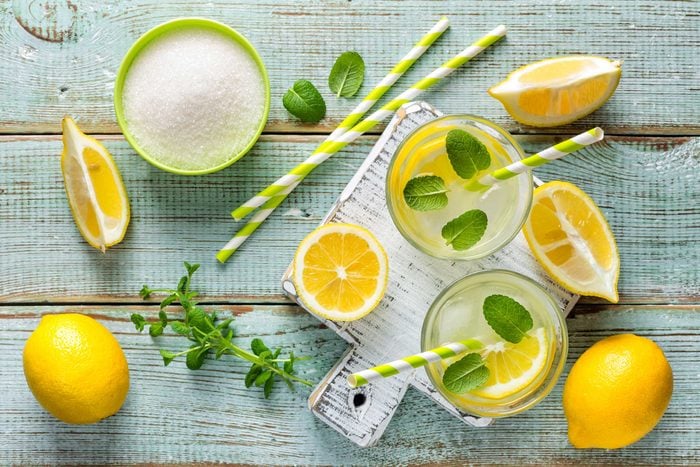
Add lemons and limes to the mix
Eating citrus fruit may lower risk of esophageal squamous cell carcinoma, one of the most common types of esophageal cancer, according to a 2018 review study in the journal Medicine. This super-simple habit can reduce your risk of esophageal cancer.
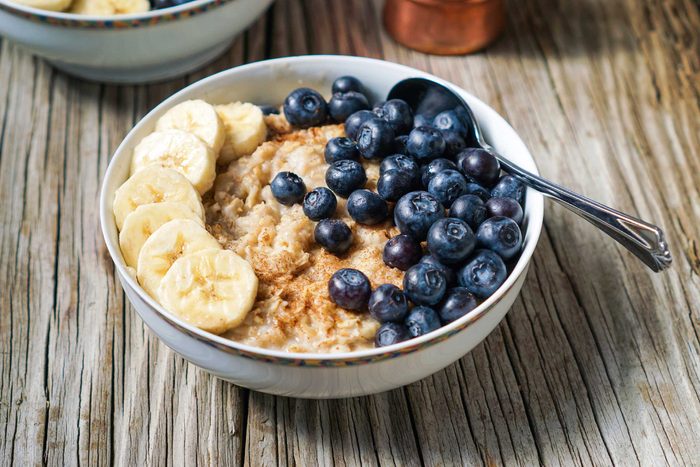
Mix half a cup of blueberries into your morning cereal
Blueberries have antioxidant and other cancer-fighting power. Antioxidants neutralize free radicals, which are unstable compounds that can damage cells and lead to diseases including cancer. Now new research suggests that they can boost the effectiveness of cancer therapy. Researchers out of the University of Missouri-Columbia found adding blueberry extract to radiation therapy can significantly improve the treatment’s effectiveness (their findings appear in Pathology and Oncology Research). Here are 7 more reasons to add blueberries to your breakfast.
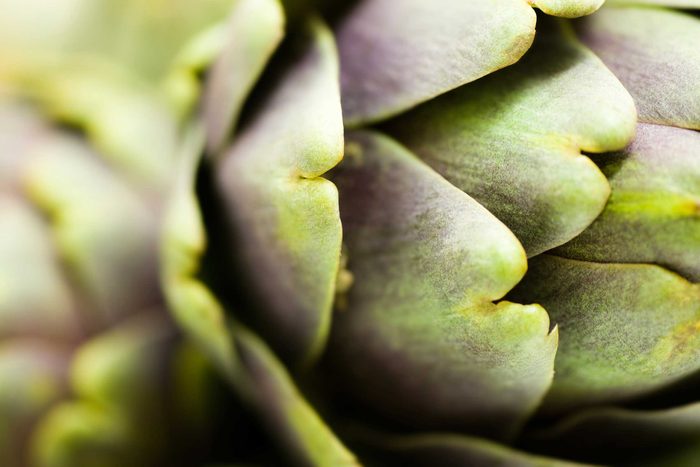
Learn to eat artichokes tonight
Artichokes are a great source of silymarin, an antioxidant that may help prevent skin cancer, explains Tribole. To eat these delicious veggies, peel off the tough outer leaves on the bottom, slice the bottom, and cut off the spiky top. Then boil or steam until tender, about 30-45 minutes. Drain. Dip each leaf in a vinaigrette or garlic mayonnaise, then gently tear the fibrous covering off with your front teeth, working your way inward to the tender heart. Once there, gently scoop the bristles from the middle of the heart, dip in a little butter or lemon juice, and enjoy. Here are some facts about skin cancer that everyone should know.
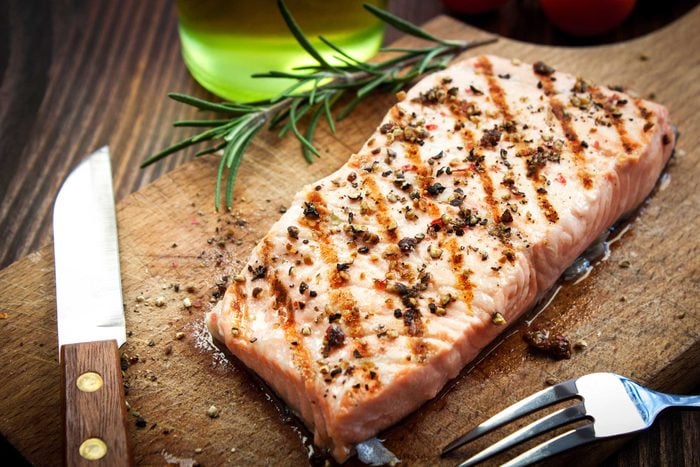
Throw some salmon on the grill tonight
Australian researchers found that people who ate four or more servings of fish per week were nearly one-third less likely to develop the blood cancers leukemia, myeloma, and non-Hodgkin’s lymphoma, Tribole explains. Other studies show a link between eating fatty fish (salmon, mackerel, halibut, sardines, and tuna, as well as shrimp and scallops) with a reduced risk of endometrial cancer in normal-weight women. Ah, those amazing omega-3s at it again. Here are the silent leukemia symptoms you should never ignore.
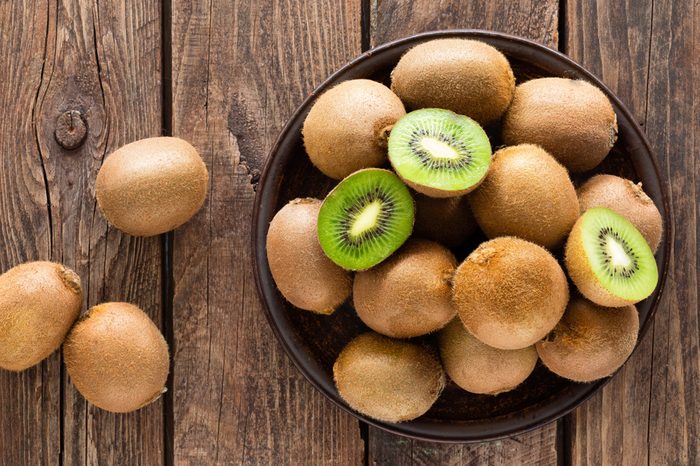
Cut a kiwifruit in half, then scoop out the flesh with a spoon
Kiwi is a little hand grenade of cancer-fighting antioxidants, including vitamin C, vitamin E, lutein, and copper. You can also rub a couple of cut kiwifruit on a low-fat cut of meat as a tenderizer, Tribole suggests. Here are some more health benefits of kiwi.
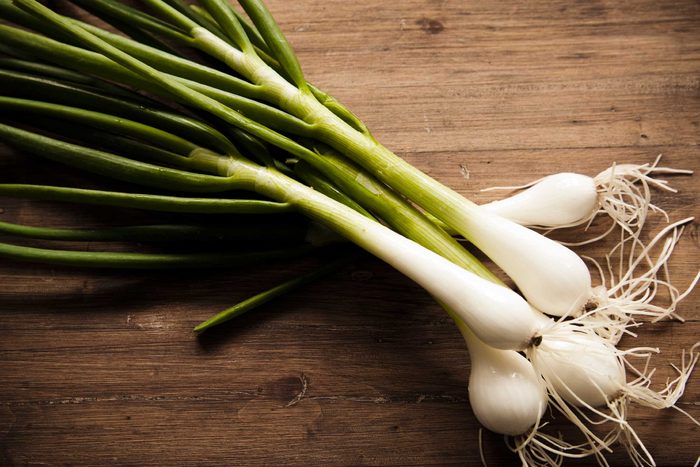
Sprinkle scallions over your salad
A diet high in onions may reduce the risk of prostate cancer by 50 percent. But the effects are strongest when they’re eaten raw or lightly cooked. So try scallions, Vidalia onions, shallots, or chives for a milder taste. Before you get cooking, learn the answer to your burning question: Why do onions make you cry?
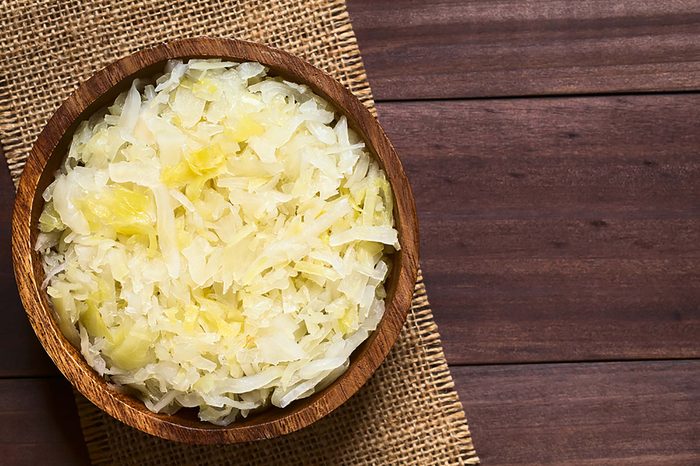
Serve sauerkraut
A Finnish study found that the fermentation process involved in making sauerkraut produces several other cancer-fighting compounds, including ITCs, indoles, and sulforaphane, Tribole notes. To reduce the sodium content, rinse canned or jarred sauerkraut before eating. Here are some surprising risks of cancer you may not know about.
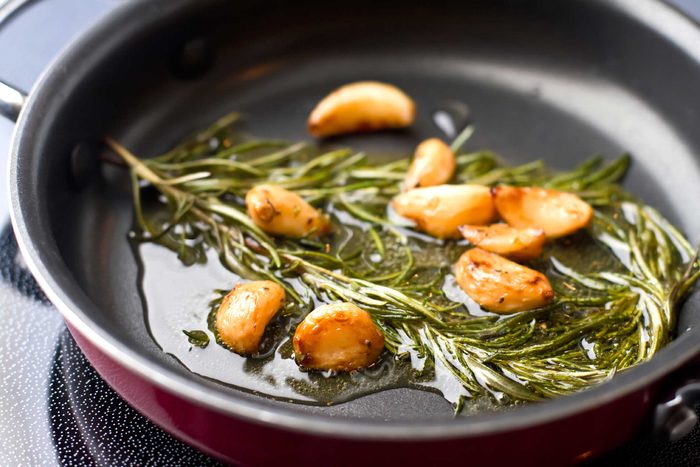
Go Mediterranean
More than 4,000 women followed the Mediterranean diet supplemented with olive oil, the diet with nuts, or a low-fat diet in a JAMA: Internal Medicine study. In five years, women on the Mediterranean diet with olive oil had a 68 percent lower risk of breast cancer than those on the low-fat diet. The nut group had a lower risk that was not statistically significant. Women with the lowest risk ate about four tablespoons of olive oil per day. Here are some ways you can prevent breast cancer.
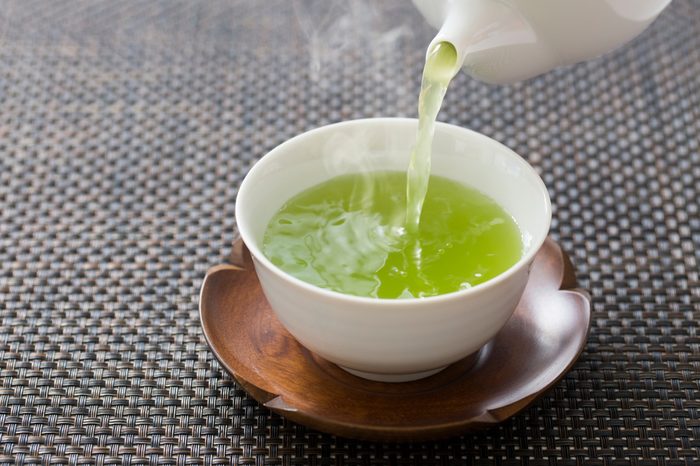
Make tea a go-to drink
Women who drink at least two cups of black tea daily have a 32 percent lower risk of ovarian cancer compared with those who drink one cup or less per day, according to a large study published in the American Journal of Clinical Nutrition. That’s just one of several studies pointing to anti-cancer properties of tea. This may be due to certain flavonoids (antioxidant compounds synthesized by plants) in black tea. The study did not include other types of tea, though studies have shown benefits in other varieties. Learn why cancer prevention is just one benefit of green tea, and what other health boosts you’ll get.
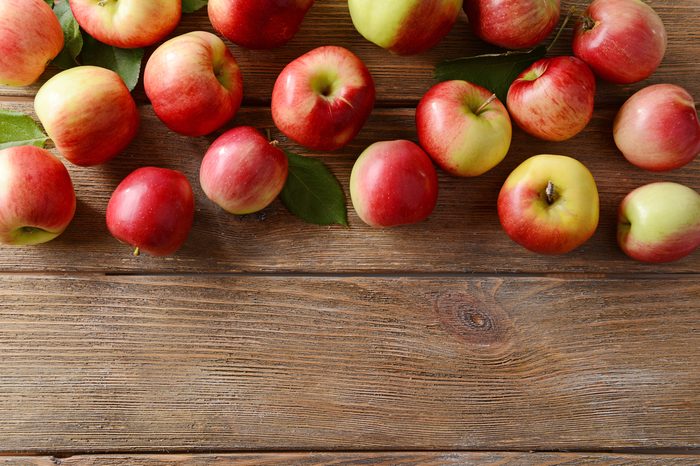
Snack on apples
When the natural fiber in apples ferments in the colon, it produces chemicals that help fight the formation of cancer cells, according to German research, Tribole says. Other studies have shown that one type of antioxidant found in apples, called procyanidins, triggered a series of cell signals that resulted in cancer cell death, Here are some delicious ways to eat apples to maximize their health benefits.
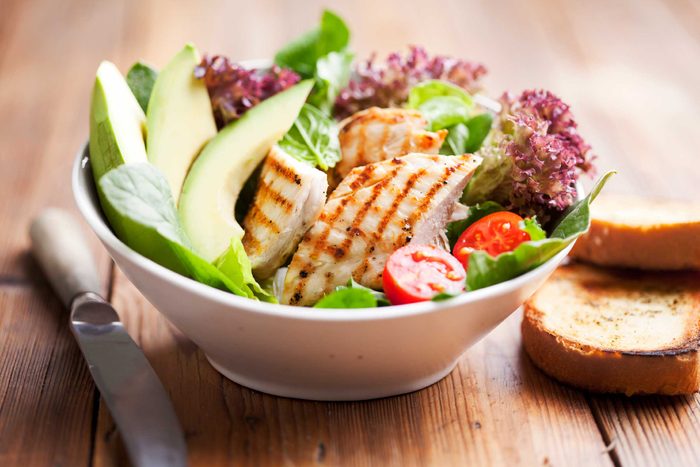
Add avocado to salads
Healthy monounsaturated fats (like those in avocados and its oil) will help your body better absorb anticancer antioxidants such as lycopene (from, say, tomatoes) and beta-carotene (from carrots, for example), Tribole writes. Here are some signs you’re not eating enough healthy fats.
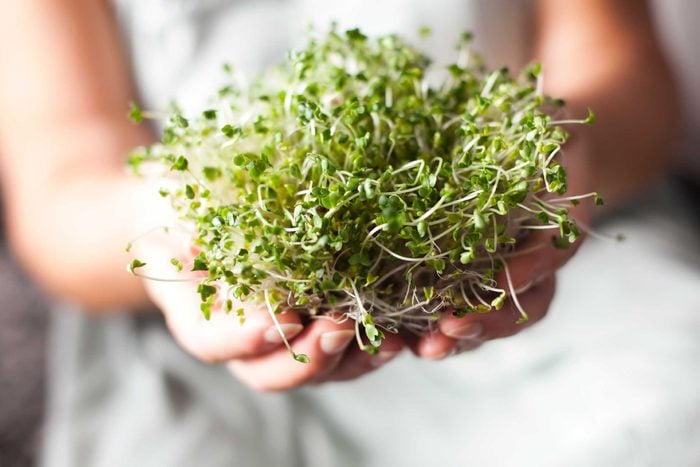
Garnish food with bean sprouts
Bean sprouts are a rich source of sulforaphane, one of the most potent anticancer compounds isolated from a natural source. Sprouts can contain 50 times more sulforaphane than mature beans, Tribole writes. Garnish chicken or beef noodle soup with sprouts, sprinkle a layer of sprouts on a whole grain tuna salad wrap, or add sprouts to a veggie omelet. Always wash sprouts carefully and take other precautions due to the high risk of food-poisoning. Here are some more ways you can reduce your risk of cancer.
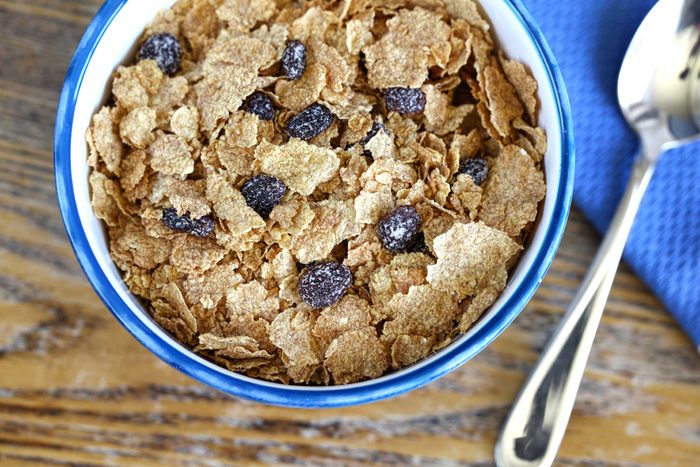
Stock up on bran cereal
Bran, one of the richest sources of dietary fiber, is the indigestible outer husk of wheat, rice, oats, and other cereal grains. Bran’s high fiber content may reduce the risk of colon and other obesity-related cancers, Tribole notes. In addition to eating bran in the morning, stir a couple of spoonfuls of oat bran into a stew or use wheat bran instead of bread crumbs to top casseroles. These colon cancer signs are easy to miss.
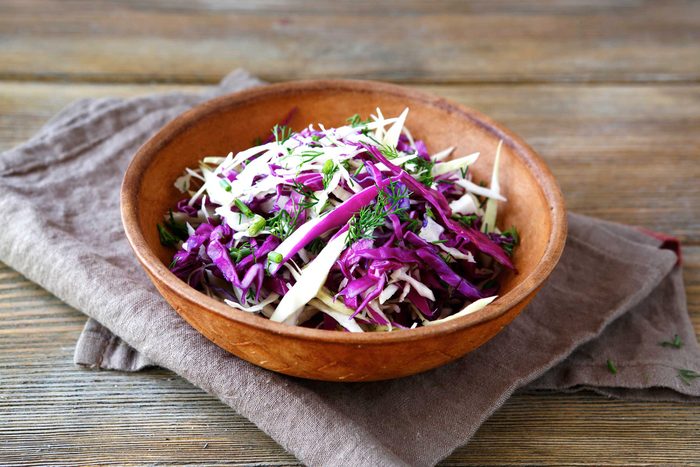
Make friends with cabbage
People who eat large amounts of cabbage have low rates of colon cancer, as well as other kinds of cancer. Cabbage contains bioflavonoids and other plant chemicals that inhibit tumor growth and protect cells from free radicals. The research has been mixed but it has some plausibility. Other chemicals in cabbage also speed up the body’s metabolism of estrogen, a hormone that, in high amounts, is associated with breast cancer. These chemicals may also help protect against cancers of the uterus and ovaries. These are 15 cancer symptoms women commonly ignore.
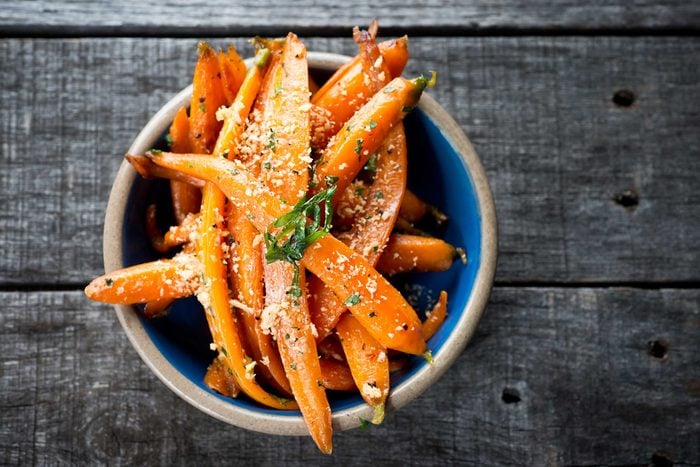
Trade crackers for carrots
Let carrots be your go-to dip utensil. In addition to being our most abundant source of beta-carotene, carrots also contain other carotenoids, including alpha-carotene and bioflavonoids, which have been linked to reducing the risk of cancer, especially lung cancer. However, studies have shown that beta-carotene supplements (as opposed to actual food) may be particularly harmful to smokers. These habits reduce your risk of lung cancer.
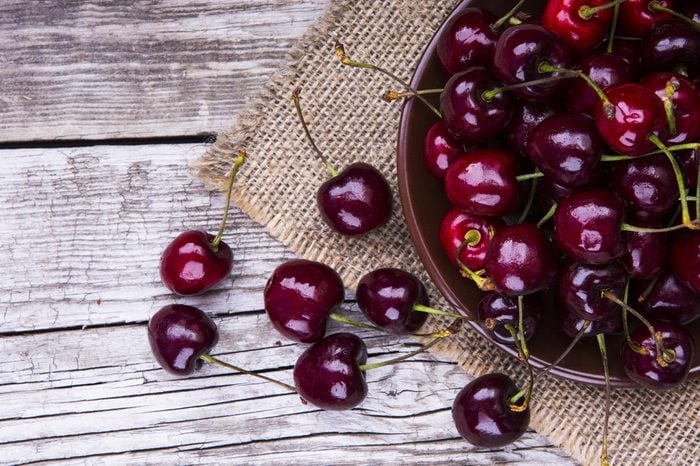
Cook with cherries
Sour cherries are an abundant source of quercetin, a flavonoid with anticarcinogenic and antioxidant activities, Tribole says. Add quartered cherries to pancakes, or make a sauce with cherries and pomegranate juice thickened with arrowroot. These are the antioxidant-rich fruits and veggies you should be eating.
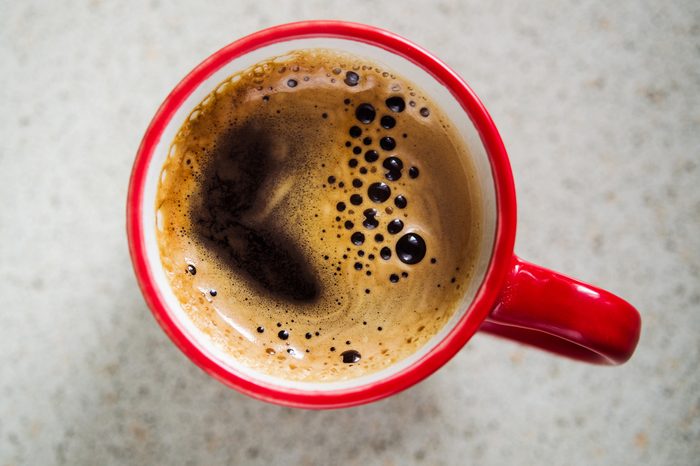
Keep on drinking coffee
Java fan? Your daily beverage might help fend off cancer. People with colorectal cancer who drank at least four cups of coffee per day after their diagnosis had a significantly lower risk of early death—from their cancer and other causes—than those who didn’t drink coffee, finds to a new study from Harvard T.H. Chan School of Public Health. Here’s what you need to know about coffee’s cancer-fighting abilities.
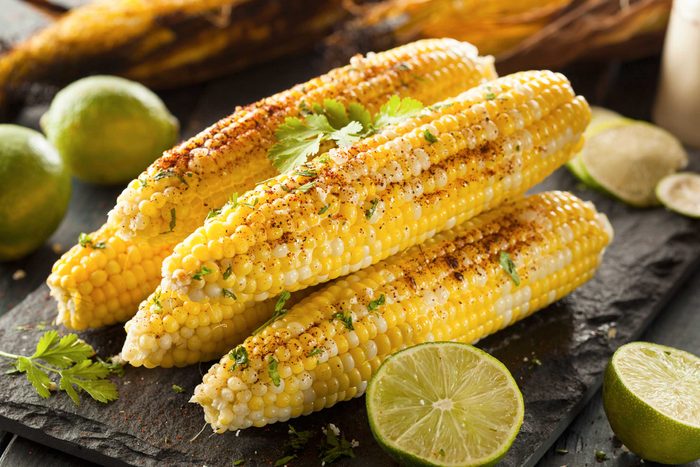
Nibble on corn
This summer BBQ staple contains a phenolic compound called ferulic acid, which may inhibit cancer-causing substances, Tribole writes. Think outside the cob: You can mix corn kernels with chopped bell pepper and ground pork for a tasty burger, or even add some cooked kernels to a smoothie. Here are some other cancer-fighting foods you should be eating lots of.
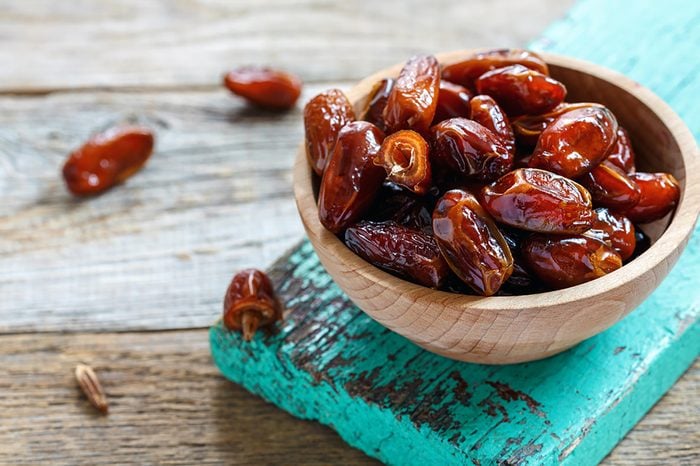
Have dates for dessert
Dates are higher in total polyphenols than any of the most commonly consumed fruits or vegetables, according to the US Department of Agriculture. The reason? They grow in deserts, and the harsh environment causes polyphenols to provide protection from oxidative stress to the palm’s fruit. The polyphenols, along with vitamin B6 and fiber, may help prevent certain types of cancer. Learn the signs of pancreatic cancer you might be ignoring.
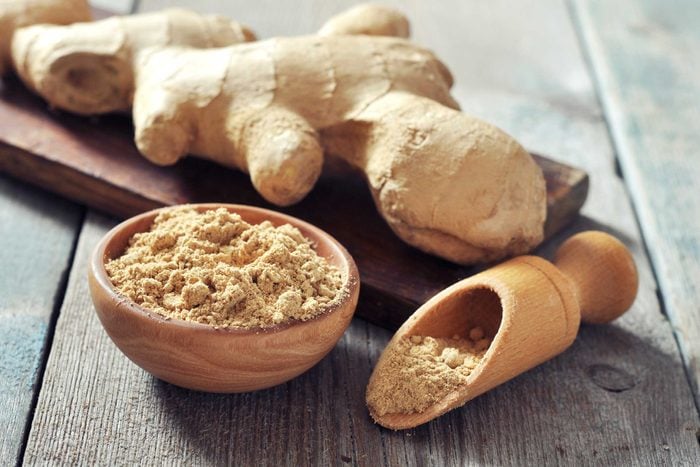
Spice things up with ginger
A number of studies point to cancer-fighting properties of ginger. In one from the University of Michigan, ginger was found to cause ovarian cancer cells to die. Tumors induced in laboratory animals grow much more slowly if the animals are pretreated with beta-ionone, a compound found in ginger. Add a slice of ginger to tea as it brews, sprinkle chopped candied ginger over morning oatmeal, or stir a heaping spoonful of grated ginger into mashed sweet potatoes. Here are some more health benefits of ginger.
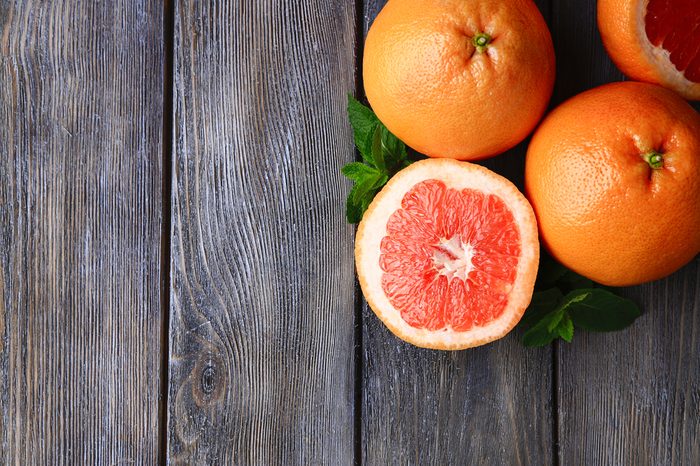
Eat grapefruit for breakfast
Pink and red grapefruits are high in lycopene, an antioxidant that appears to lower the risk of prostate cancer. A six-year Harvard study involving 48,000 doctors and other health professionals has linked 10 servings of lycopene-rich foods a week with a 50 percent reduction in prostate cancer. Other protective plant chemicals found in grapefruits include phenolic acid, which inhibits the formation of cancer-causing nitrosamines; limonoids, terpenes, and monoterpenes, which induce the production of enzymes that help prevent cancer; and bioflavonoids, which inhibit the action of hormones that promote tumor growth. However, here are the times you shouldn’t eat grapefruit.
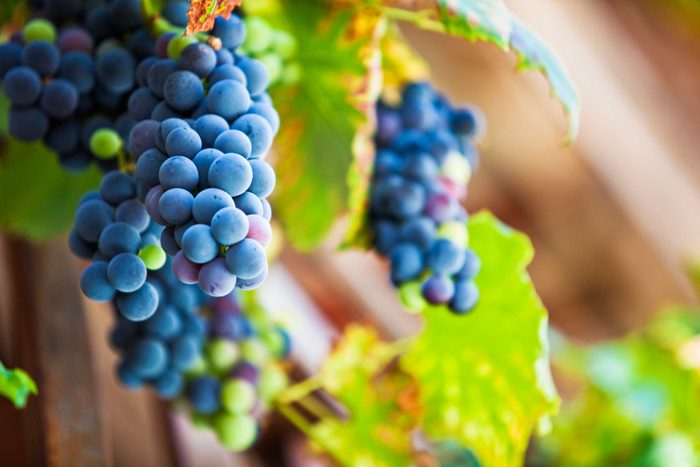
Snack on grapes and raisins
The skin of red grapes contains resveratrol, a potent phytochemical that is linked to a reduction in cancer as well as heart disease and stroke, Tribole says. Grapes also contain ellagic acid, which is thought to protect the lungs against environmental toxins. In addition to popping grapes as a snack, you could stir halved grapes into gazpacho or toss some slices into a pasta salad. Grape seed extract also has some important health benefits.
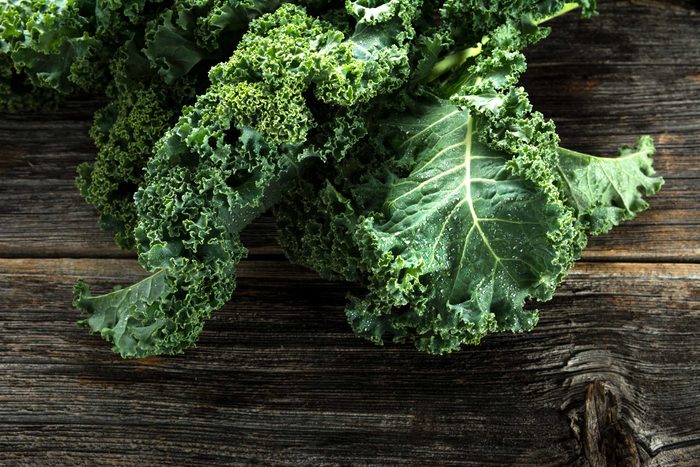
Load up on kale and other cooking greens
Bioflavonoids, carotenoids, and other cancer-fighting compounds are abundant in cooking greens. They also contain indoles, compounds that can lessen the cancer-causing potential of estrogen and induce production of enzymes that protect against disease, Tribole writes. Add some raw kale to salads, braise chopped mustard greens with plenty of chopped garlic, or layer chopped cooked chard in lasagna. Check out these other 10 healthiest vegetables at the supermarket.
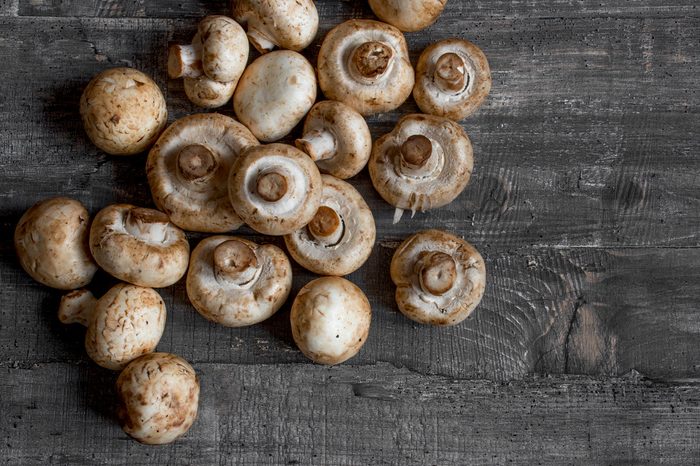
Make room for mushrooms
Portobello and white mushrooms are good sources of selenium, which is a potent cancer-fighting mineral, particularly for prostate cancer. Additionally, mushrooms are rich in disease-fighting phytochemicals and eating them regularly has been linked to a lower risk of breast cancer in Chinese and Korean women, Tribole points out. To complete the picture: mushrooms are also high in cancer-fighting vitamin D.
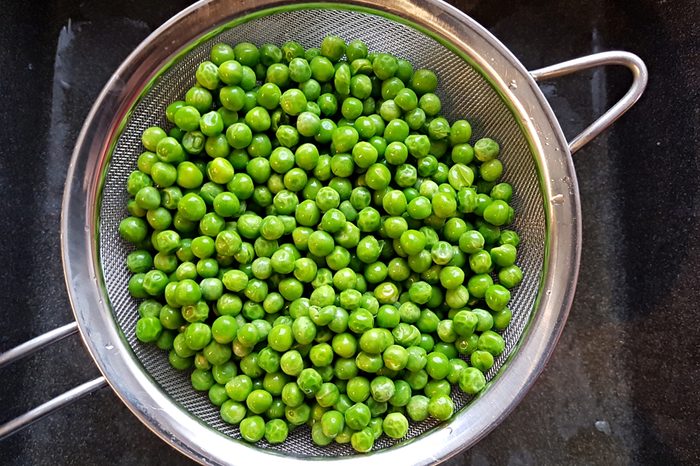
Pick on peas
A study in Mexico City published in the International Journal of Cancer showed that daily consumption of green peas, along with other legumes lowers the risk of stomach cancer, especially when daily intake of coumestrol (a phytochemical that acts similarly to estrogen in the body) from these legumes is 2 mg or higher. One cup of green peas contains at least 10 mg of coumestrol. Here are some more foods that are even better for you than you realized.
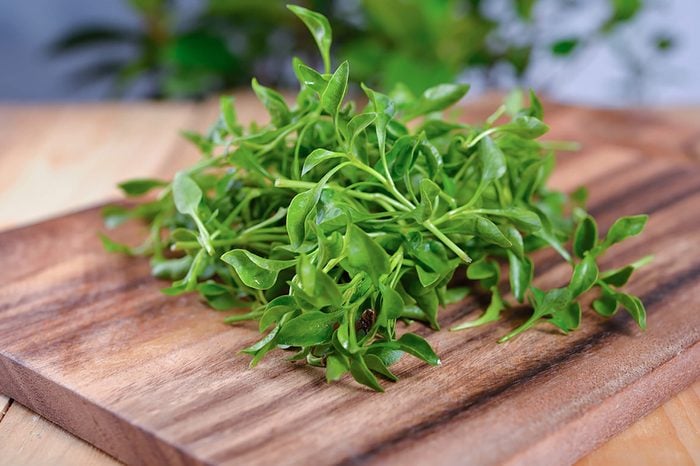
Top your taco with watercress
A recent study identified nutritional powerhouses—and watercress was at the top of the list. “It is chock full of vitamins, minerals, and antioxidants. It has a peppery taste and is awesome as a sandwich or taco topper, or mixed into a salad,” says Dena Champion, MS, RD, LD, an outpatient clinical oncology dietician at The Ohio State University Comprehensive Cancer Center–Arthur G. James Cancer Hospital and Richard J. Solove Research Institute (OSUCCC – James) in Columbus, OH. Also scoring high are Swiss chard and spinach, she says. “Swiss chard and spinach are both awesome sautéed with just a bit of olive oil, garlic, and a dash of salt and pepper and if you like spice, add some red pepper flakes.”
Champion is quick to caution that there is no one food that prevents cancer. “What is most important is dietary patterns over time, which means what you are doing most of the time, not what you are doing at one meal or for a week or a month,” she says. “Think about making your plate mostly plants. In fact, ½ your plate should be non-starchy veggies, ¼ whole grains, and ¼ plant-based or lean animal protein.”
